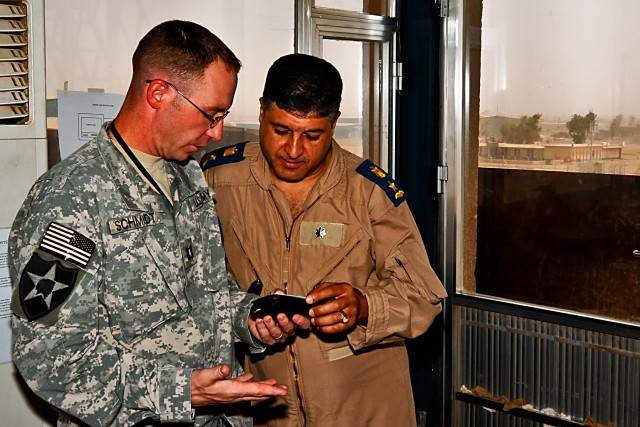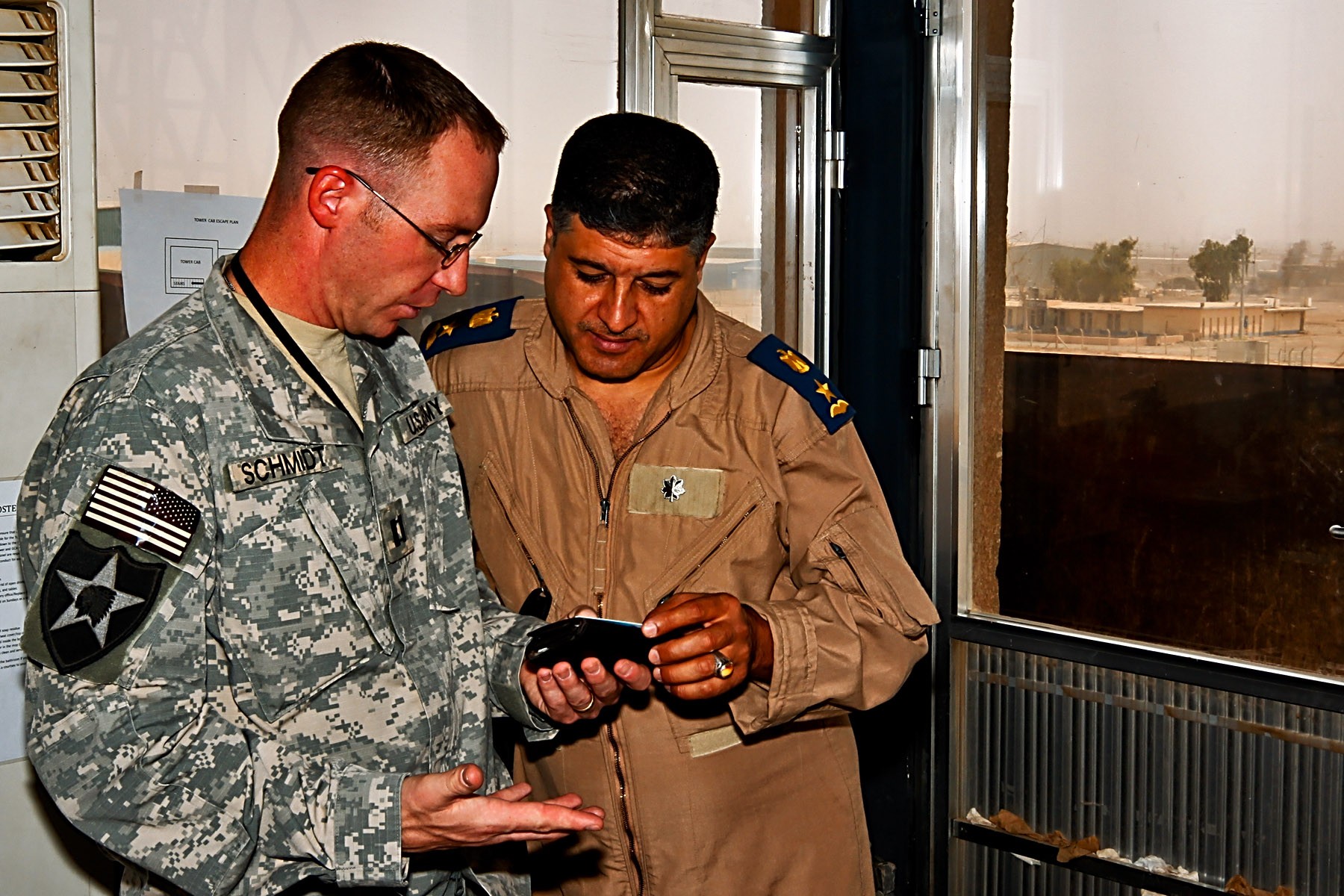
TAJI, Iraq - Communication between an air traffic control tower and the aircraft must be concise and clear or the consequences could be deadly.
To alleviate some of the communication problems between American forces in the tower and Iraqi pilots, a request was made by the Iraqi Air Force, to place a liaison in the control tower located on Camp Taji, Iraq, a base north of Baghdad.
The request was made during a meeting between the leadership of the 1st Air Cavalry Brigade, 1st Cavalry Division, Multi-National Division - Baghdad and leadership of the Iraqi Air Force on June 6. One month after the meeting, that request is being fulfilled.
Being an ATC (air traffic control) operator can be a stressful job; the operators on Camp Taji are responsible for the air space within a five-mile diameter around Taji and deal with a great amount of helicopter traffic. They are the voice the aviators trust to keep the airspace safe.
Having a commanding view of the flight line and up to date information are vital tools to help controllers like Spc. Brian Kelly, from Stillwater, Okla., in Company F, 2nd Battalion, 1st ACB, do their job.
"We sequence and de-conflict aircraft to get them safely to the ground. We keep metal from scraping metal," said Kelly.
"As a liaison (the Iraqi ATC) might help because he can understand (Iraqi pilots) better," said Kelly. "They have different rules over there compared to what we have, so he will be able to bridge that gap and explain the situation."
Lt. Col. Mohammed Sami'r Abraheem ALsaady graduated in 1991 from the Iraqi Air Force college; in 1994 he completed his ATC training in Jordan and has gained experience from multiple airfields across Iraq, he said.
Working as an ATC controller is something he loves to do and coming to work with the American forces, he feels that the controllers are now his new brothers, said Sami'r.
The Iraqi pilots are anxiously waiting for the sound of his voice over the radio and the information that he will be able to provide from his new experiences working with the U.S. ATC Soldiers, he said.
Having a positive attitude on the situation, Capt. Stephen Schmidt, a UH-60 Black Hawk helicopter pilot and commander of Co. F, 2nd Battalion, 1st ACB, was impressed at how his Soldiers reacted to the enthusiasm of the liaison.
"Once these guys saw that Sami'r wanted to get into the job and learn how things operated up here, they became very enthusiastic in being a part of it," said Schmidt.
The air traffic controllers want to ensure nothing gets lost in transition, he said.
"We have some difficulties communicating with the Iraqi pilots - it was just the language barrier that was hurting us," said Schmidt. "Having Lieutenant Colonel Sami'r in the tower is a great way to help the Iraqi pilots understand exactly what the tower wants the aircrew to do and when to do it - not when the aircrews feel like doing it."
Having Sami'r in the tower is one-step in a newly formed and continuing relationship between the Iraqi air force and the 1st Air Cav. Bde.

Social Sharing